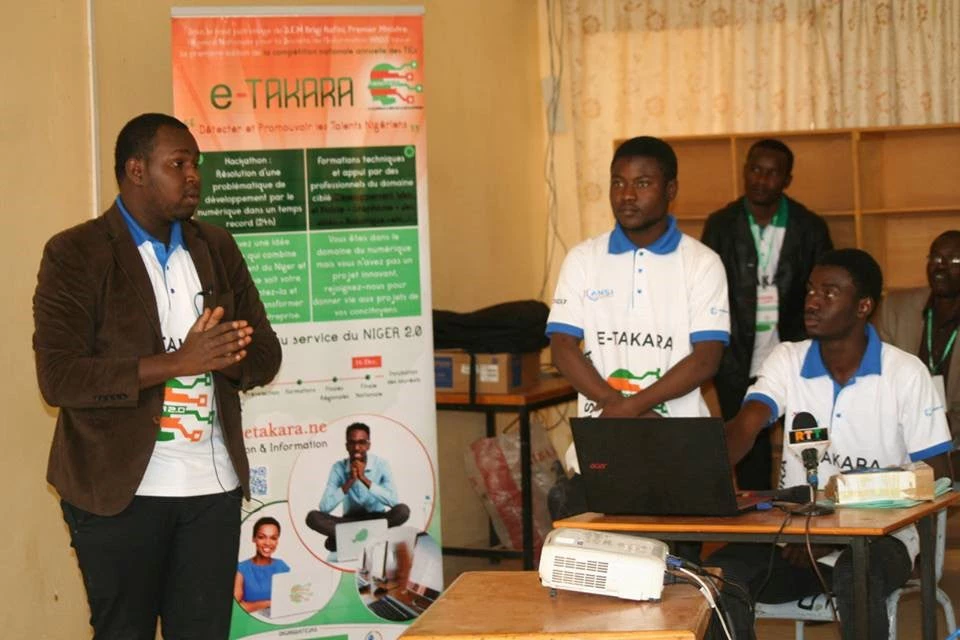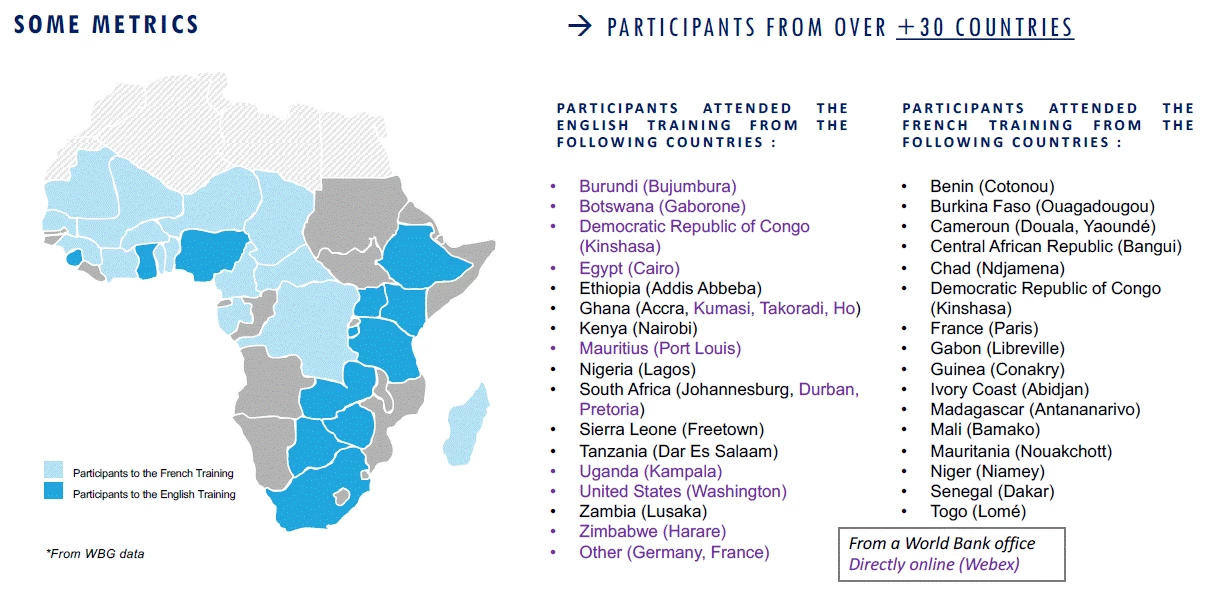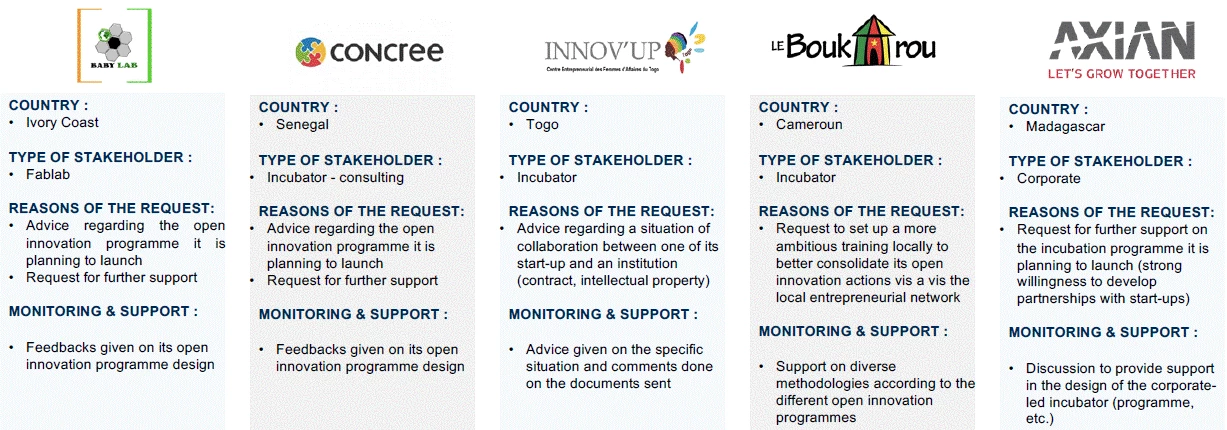
“The training has completed my knowledge about open innovation. I can now go and talk to potential clients to identify their needs and show what we can offer them.” -- Mariem Kane, Hadina RIMTIC incubator
Distributive, participative and decentralized, open innovation programs can pave the way for start-ups to access larger markets and business opportunities. They also allow corporate partners to respond quickly to changing market dynamics and test out new products or target new audiences.
African incubators, however, have yet to capitalize on the potential of open innovation. Often lacking the necessary knowledge and expertise to set up and implement such a program, incubators are missing out on a crucial opportunity to foster partnerships between their start-up clients and other stakeholders in the ecosystem, including large businesses and government.
Conscious of the need to fill this gap, our team, in collaboration with Afric’innov, AfriLabs, and ScaleChanger hosted a webinar through the World Bank’s Opening Learning Campus (OLC) titled African incubators: how to leverage the potential of open innovation.
The session, presented in both English and French, was open to the incubator network of the Bank, Afric’innov and AfriLabs, as well as World Bank staff.
More than 300 participants from over 30 countries took the training to better understand the concept of open innovation and the role incubators can play in fostering collaborative innovation.

Speaking during the session, Senior Private Sector Development Specialist, Alexandre Laure, emphasized that this was also a chance for World Bank staff to assess existing incubators’ capacity to implement open innovation programs. “This will help inform WBG projects and improve our institution’s ability to support private sector development.”
The role for incubators in facilitating partnerships between their clients and other stakeholders in the ecosystem — before, during and after — was the webinar’s central theme. Focusing specifically on corporate open innovation, the session included best practices for collaboration between larger firms and start-ups.
To inspire participants, the webinar presented real-word examples:
- Open innovation takes many forms and is not limited to the private sector. The e-Takara competition, for example, was launched in 2017 by the Public Agency for ICT in Niger and implemented by the incubator CIPMEN. Startups were trained and coached to develop solutions for challenges facing Nigerien public administrations. If the solution was judged relevant, startups had the opportunity to a memorandum of understanding with the respective agency. As of today, four entrepreneurs have been working closely with the Ministry of Higher Education, the Directorate-General for Taxation, the Directorate of Civil Defense, and the City of Niamey, to improve concrete public services.
- Nigeria’s acceleration program Startup Connect was also discussed. Sponsored by Union Bank, Nigeria’s second-oldest bank, and delivered by Co-Creation Hub Nigeria (Cc-HUB), this smart sourcing program links Nigerian tech companies with the Union Bank brand to create next-generation technology solutions for the African market. 12 shortlisted startups participated in a two-day workshop to prepare their pitch and clarify their value proposition before three winners were announced.
At the end of the session, participants were awarded a certificate, which some of them used to get a first meeting with potential corporate partners! The image below shows a list of incubators that followed up with the trainers and the World Bank to start their open innovation engagement in their respective countries.

If you missed the webinar, you can watch the recording here: African Incubators: how to leverage the potential of open innovation? And you can help others learn too by sharing the webinar link through your social media channels.



Join the Conversation